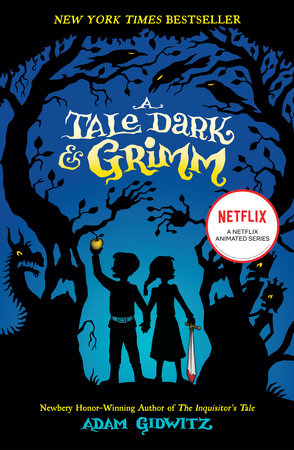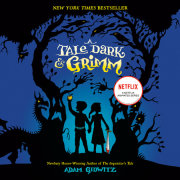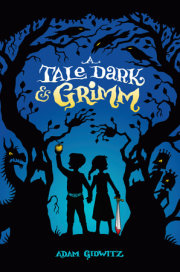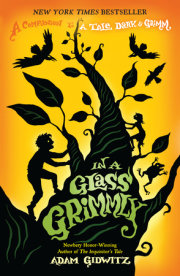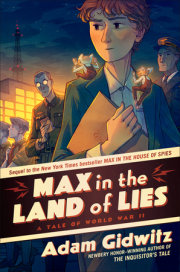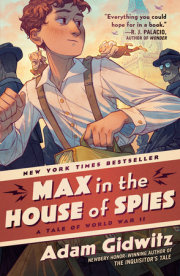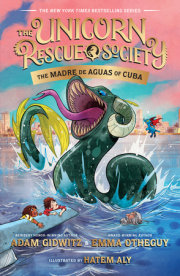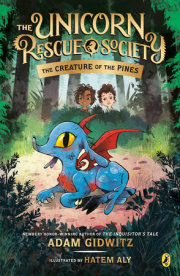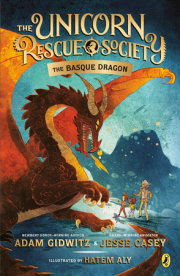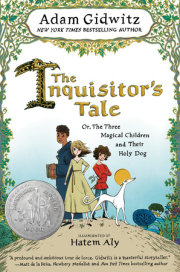Once upon a time, in a kingdom called Grimm, an old king lay on his deathbed. He was Hansel and Gretel’s grandfather—but he didn’t know that, for neither Hansel nor Gretel had been born yet.
Now hold on a minute.
I know what you’re thinking.
I am well aware that nobody wants to hear a story that happens before the main characters show up. Stories like that are boring, because they all end exactly the same way. With the main characters showing up.
But don’t worry. This story is like no story you’ve ever heard.
You see, Hansel and Gretel don’t just show up at the end of this story.
They show up.
And then they get their heads cut off.
Just thought you’d like to know.
The old king knew he was soon to pass from this world, and so he called for his oldest and most faithful servant. The servant’s name was Johannes; but he had served the king’s father, and his father’s father, and his father’s father’s father so loyally that all called him Faithful Johannes.
Johannes tottered in on bowed legs, heaving his crooked back step by step and leering with his one good eye. His long nose sniffed at the air. His mouth puckered around two rotten teeth. But, despite his grotesque appearance, when he came within view, the old king smiled and said, “Ah, Johannes!” and drew him near.
The king’s voice was weak as he said, “I am soon to die. But before I go, you must promise me two things. First, promise that you will be as faithful to my young son as you have been to me.”
Without hesitation, Johannes promised.
The old king went on. “Second, promise that you will show him his entire inheritance—the castle, the treasures, all this fine land—except for one room. Do not show him the room with the portrait of the golden princess. For if he sees the portrait he will fall madly in love with her. And I fear it will cost him his life.”
The king gripped Johannes’s hand. “Promise me.”
Again Johannes promised. Then the wrinkles of worry left the king’s brow, and he closed his eyes and breathed his last.
Soon the prince was crowned as the new king. He was celebrated with parades and toasts and feasts all throughout the kingdom. But, when the revelry finally abated, Johannes sat him down for a talk.
First, Johannes described to him all of the responsibilities of the throne. The young king tried not to fall asleep.
Then he explained that the old king had asked him to show the young king his entire inheritance—the castle, the treasures, all this fine land. At the word treasures the young king’s face lit up. Not that he was greedy. It was just that he found the idea of treasures exciting.
Finally, Johannes tried to explain his own role to the young king. “I have served your father, and your father’s father, and your father’s father’s father before that,” Johannes said. The young king started calculating on his fingers how that was even possible, but before he could get very far, Johannes had moved on. “They call me Faithful Johannes because I have devoted my life to the Kings of Grimm. To helping them. To advising them. To under-standing them.”
“Understanding them?” the young king asked.
“No. Under-standing them. In the ancient sense of the word. Standing beneath them. Supporting them. Bearing their troubles and their pains on my shoulders.”
The young king thought about this. “So you will under-stand me, too?” he asked.
“I will.”
“No matter what?”
“Under any circumstances. That is what being faithful means.”
“Well, under-stand that I am tired of this, and would like to see the treasures now.” And the young king stood up.
Faithful Johannes shook his head and sighed.
They began by exploring every inch of the castle—the treasure crypts, the towers, and every single room. Every single room, that is, save one. One room remained locked, no matter how many times they passed it.
Well, the young king was no fool. He noticed this. And so he asked, “Why is it, Johannes, that you show me every room in the palace, but never this room?”
Johannes squinted his one good eye and curled up his puckered, two-toothed mouth. Then he said, “Your father asked me not to show you that room, Your Highness. He feared it might cost you your life.”
I’m sorry, I need to stop for a moment. I don’t know what you’re thinking right now, but when I first heard this part of the story, I thought, “What, is he crazy?”
Maybe you know something about young people, and maybe you don’t. I, having been one myself once upon a time, know a few things about them. One thing I know is that if you don’t want one to do something—for example, go into a room where there’s a portrait of an unbearably beautiful princess—saying “It might cost you your life” is about the worst thing you could possibly say. Because then that’s all that young person will want to do.
I mean, why didn’t Johannes say something else? Like, “It’s a broom closet. Why? You want to see a broom closet?” Or, “It’s a fake door, silly. For decoration.” Or even, “It’s the ladies’ bathroom, Your Majesty. Best not go poking your head in there.”
Any of those would have been perfectly sufficient, as far as I can tell.
But he didn’t say any of those things. If he had, none of the horrible, bloody events to follow would ever have happened.
(Well, in that case, I guess I’m glad he told the truth.)
Copyright © 2010 by Adam Gidwitz; Illustrated by Hugh D'Andrade. All rights reserved. No part of this excerpt may be reproduced or reprinted without permission in writing from the publisher.

